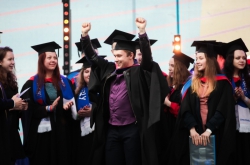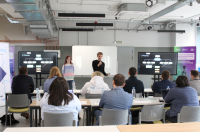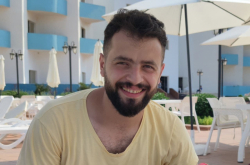A year ago, ITMO.NEWS already spoke to ITMO University experts Maria Skvortsova, Dean of Faculty of Higher Qualification Expert Training, and Stanislav Reznik, Head of the Department for Collaboration with the Dissertation Council, about the university’s new privilege. They explained the advantages that the right to award academic degrees offers, as well as identified the key issues that have to be resolved. After a year of preparing for the implementation of the new system, Maria Skvortsova answers questions about the new system and how it will affect the process of thesis defence.
In our last interview you spoke about the need to ensure a high quality of thesis defence. What has already been done in this regard?
The high quality of thesis defences of academic degrees awarded by ITMO University stems from a perfectionist approach to the scientific level of thesis research submitted by the candidates, and a new approach to forming the lineup of thesis boards.
A high scientific level of the submitted theses is evident in the publication of the key results of the research in top-rated Russian and international journals. What is more, in compliance with the need to integrate Russian science into the international scientific community, candidates also have to submit an abstract of their research in English. Involvement of leading international scientists in the field of the associated research topics is yet another important stage of the internationalization of Russian science. We’ve developed a system for selecting qualified experts who will ensure a strict control over the quality of thesis defence at ITMO. Those will be experts from ITMO University as well as other leading Russian and international educational establishments that will provide for an objective assessment of the level of submitted research. An ITMO-awarded title of a candidate or doctor of science will be closely tied to the university's reputation in Russia and abroad, which is why we have to ensure our degrees' high level of quality and prestige.

What about the lineup of thesis boards?
In June 2018 we’ve approved the general provisions, i.e. documents that regulate the fundamental principles of ITMO’s system for awarding academic degrees. Apart from the executive committee, which includes a Chairman, Vice Chairman and academic secretary, the lineup of thesis boards will be picked anew for each defence and include specialists in the field of the research in question.
What are the selection criteria for experts?
The criteria will be the candidates’ research results over the past five years. Therefore, any candidate has to have at least five publications in journals reviewed by the Higher Attestation Commission in the relevant fields. They must also have least three publications in scientific journals indexed by international databases. Another prerequisite for candidates is having participated in at least three international conferences.
How did you choose the model for forming thesis boards?
The first universities to receive the right to award academic degrees were Moscow State University and St. Petersburg State University. They were also the first to test various models of thesis boards. Having considered their experience, ITMO adopted the best practices and adapted their system with regard to the specifics of its research and educational activities. Still, we may well call our system unique: apart from the executive committee, a designated lineup of the thesis board for every particular thesis defence will be approved by a Rector’s order. These members will be selected from candidates proposed by the University’s Schools. At least a third of them will be invited experts from other educational and scientific organizations. On the whole, the lineup of each particular thesis board will include three members of the executive committee and six specialists in the relevant field (for candidate’s thesis defences; eight for doctoral thesis defences).

Will anything change in regards to preparing for a thesis defence?
The main change is that the procedure of submitting the documents and the process of thesis defence have been simplified and will rely on ITMO’s ISU system for the most part. The students will be able to to submit documents using their personal ISU page and interact with their opponents more transparently. The process of defending a thesis in English has been improved, as well.
What is more, having publications in scientific journals indexed by international databases such as Scopus and Web of Science is now an essential requirement for students who want to defend their theses at ITMO University.
What about appeal claims? Who is going to handle them?
Ensuring the transparency of the entire procedure is among the most important tasks for us. Appeal claims will be handled by special expert committees formed by the university’s R&D council. At least 50% of the expert committee’s lineup will be experts who are not members of the thesis board or of ITMO University’s staff. In any case, we hope that we won't get many appeal claims, as thesis boards will make correct and just decisions.

What else has been done in regards to creating ITMO’s own thesis boards?
Our colleagues, scientists and staff of ITMO University, did a great job by not only identifying the core concept of awarding academic degrees at a university, but also coming up with a detailed procedure. As of now, the university has already developed and approved its in-house forms of candidate and doctoral diplomas. The diplomas are written in two languages, and the use of advanced technologies ensures their high durability and the opportunity to provide more information about the candidates and their thesis research.






